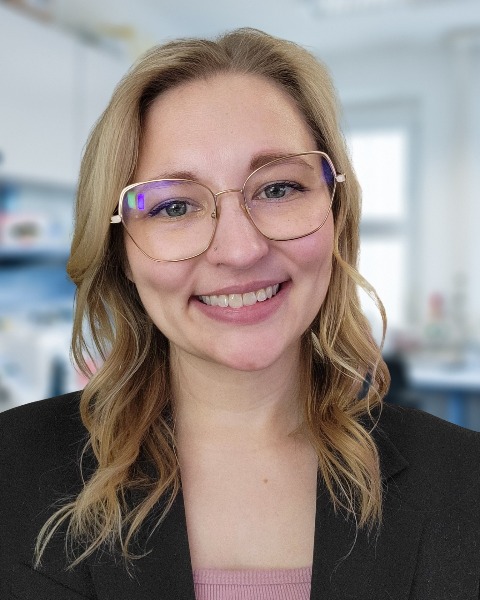Oral Abstract
Immunohematology and Genetic Testing (red cells/leukocytes and platelets) - Immunohematology (includes serology)
#OA1-AM25-MN-20 - Novel JK*A(160T) Identified in a Pediatric Patient with Anti-Jka: Evidence from Family-Based Investigation

Chloe Homich, MLS(ASCP)SBB (she/her/hers)
Immunohematology Reference Laboratory Manager
New York Blood Center Enterprises, Blood Bank of Delmarva
Newark, DelawareDisclosure information not submitted.
Presenting Author(s)
Investigations of discrepancies between test methods, such as serology and genotyping, have led to the identification of novel alleles. In this study, we investigated samples from an Asian patient with HbE / β‐thalassemia and his parents. The patient was predicted Jk(a+b+) by PreciseType HEA (Werfen), but had apparent anti-Jka in plasma in addition to multiple alloantibodies and warm autoantibody (WAA).
Study
Design/Methods:
Testing was performed on 7 patient samples (S1-S7) and maternal and paternal samples. Serologic testing was performed by standard tube methods. Patient plasma was tested by LISS or PEG IAT. Allogeneic adsorptions (AA) were done when indicated. RBCs were typed with multiple Anti-Jka or -Jkb: Werfen, Quidel Ortho, Alba, or Bio-Rad. Amplification and Sanger sequencing of JK exons 3 to 10 and flanking intron regions were performed for all samples. Allele-specific (AS) PCR, followed by Sanger sequencing of JK exons 4-6 and exons 6-8 was done to phase variants.
Results/Findings: For S1, anti-E, -Fyb, and -S were detected at LISS IAT and PEG IAT; the DAT was negative. Two weeks later, S2 plasma reacted with 5 of 6 Jk(a+) panel cells by LISS IAT, suggesting possible anti-Jka. Sample was referred for JK sequencing. Five weeks after S1, S3 contained a probable WAA that was demonstrating in plasma and required AA studies. Plasma was adsorbed with phenotypically similar Jk(a–) RBCs; anti-Jka was identified in the adsorbed plasma. Adsorbed plasma from S4 and S5 contained anti-E, -Fyb, -S, and -Jka by LISS IAT. S6 neat plasma contained anti-E, -Fyb, -S, and -Jka. The plasma was tested against paternal RBCs and was negative by PEG IAT. The patient was transfusion-free for S7 and his RBCs typed Jk(a+w b+w) using Werfen and Ortho reagents. Neat plasma contained anti-E, -Fyb, -S, and -Jka, and his autocontrol was negative by LISS IAT and PEG IAT, consistent with alloantibody. Paternal RBCs were weakly reactive with 2 of 4 Anti-Jka reagents (Ortho, Bio-Rad) and reacted comparably to Jk(a+) control cells with the other 2 Anti-Jka reagents (Alba, Werfen). The maternal RBCs were weakly reactive with Ortho Anti-Jkb.
JK sequencing of the proband confirmed JK*A/B (c.838G/A) and detected heterozygous variants c.160G >T (p.Val54Leu), c.499A >G (p.Met167Val), and c.588A >G (p.Pro196=). Sequencing of AS-PCRs phased variant c.160T to JK*A and c.499G and c.588G to JK*B; JK*A(160T) being a novel allele. Testing of the parents showed the proband inherited JK*A(160T) from his father and JK*B(499G,588G) from his mother.
Conclusions:
We report a novel allele, JK*A with a c.160G >T (p.54Val/Leu), that encodes an apparent weak and partial Jka antigen. Familial studies allowed assessment of the impact of novel JK*A(160T) on antigen expression to assess the proband serology.

